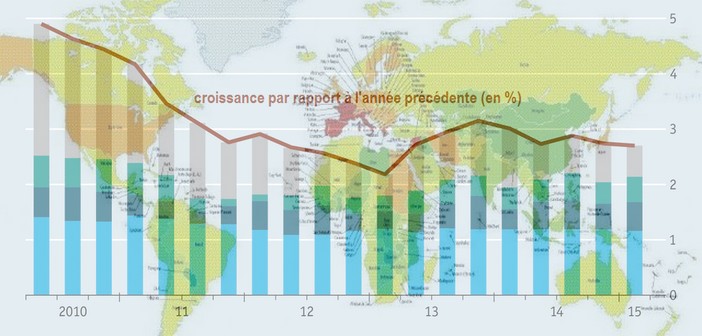From Europe to China, global growth is disappointing. The hypothesis of secular stagnation, linked to real interest rates that are still too high, may help explain it.
The Bank for International Settlements proposes another explanation, highlighting the negative effect of over-indebtedness resulting from highly accommodative monetary policies.
Global growth is once again disappointing. A year ago, the International Monetary Fund expected global output to increase by 4% in 2015. Today, the Fund forecasts 3.3% growth for this year – roughly the same as in 2013 and 2014, and more than a point below the 2000-2007 average.
In the eurozone, second-quarter growth was disappointing. Japan is in negative territory again. Brazil and Russia are in recession. Global trade is stalling. This summer, in addition, economic slowdown and market turbulence in China have created further uncertainty.
Certainly, there is also good news: India, Spain, and the United Kingdom have all outperformed expectations.
The recovery in the United States is solid. Africa is doing well. But overall, it is hard to deny that the global economy lacks momentum.
This is partly because growth cannot go on indefinitely: China’s economy could not continue to grow at 10% each year.
Furthermore, growth is not unconditionally desirable: a little less growth and a little more clean air can improve well-being.
However, the gap between growth expectations and potential reality has often become a serious issue, one that cannot be solved by boosting demand and endlessly accumulating debt.
Governments should rather stop basing their legitimacy on excessive growth projections.


